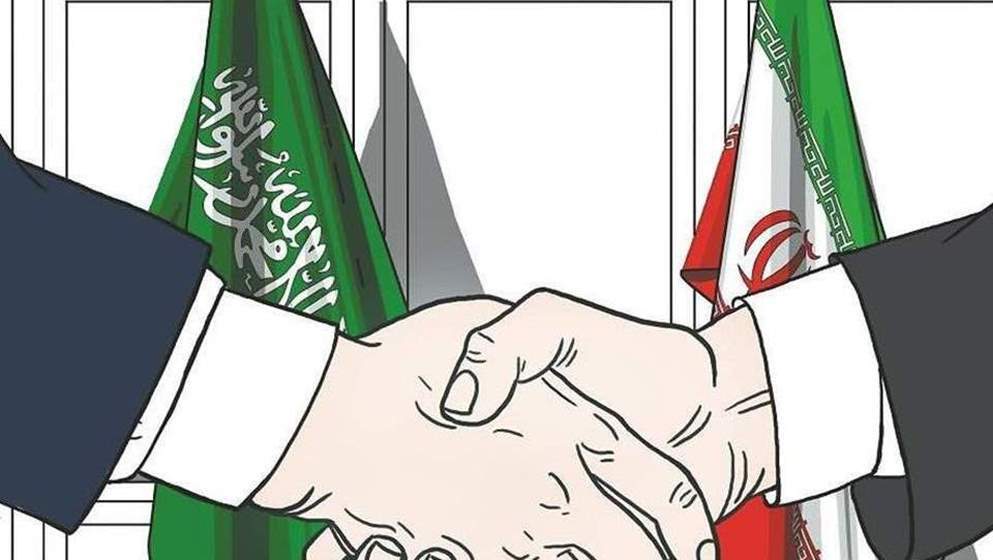In the changing profiles of power in this region of ours, new permutations could emerge where old friends turn into foes, and traditional foes become allies. Saudi Arabia and Iran have diagonally different approaches, are affiliated with different sets of — sometimes antagonistic — allies, and also see themselves locked into zero-sum rivalries.
اضافة اعلان
When the Islamic Revolution took place in 1979 in Iran, most Gulf Arab states and Iraq, who are direct neighbors, saw the Iranian new state as a threat. When the Iraq-Iran war broke out in 1980, it was rationalized by Iraq as a vehicle to stem Iran’s hegemonic plans against its neighbors. The GCC and Jordan aligned themselves with Iraq and supported its long and costly war against Iran.
Once the war ended in a stalemate in 1988, with each side claiming victory, the tide of events turned against Iraq. Negotiations with Kuwait over compensation and oil shares ended with Iraq occupying Kuwait in August 1990, an event which led other GCC members to stand behind Kuwait. Jordan, which logistically and politically supported Iraq went into severe economic crisis in 1989. Then came January 15, 1991 when the Allies, led by the US, attacked the Iraqi army in Kuwait, which led to Iraq’s eviction from and the liberation of Kuwait.
 “Can Saudi Arabia and the Islamic republic arrive at a deal to sort out their differences? What kind of a deal would it be, if any?” asks Jordan News columnist Jawad Anani. (Photo: Shutterstock)
“Can Saudi Arabia and the Islamic republic arrive at a deal to sort out their differences? What kind of a deal would it be, if any?” asks Jordan News columnist Jawad Anani. (Photo: Shutterstock)
Yet these changing events did not improve Saudi-Iranian relations despite the deterioration of Saudi-Iraqi relations. Iranian pilgrims staged demonstrations in Mecca twice and were met with iron and fire to quell their zeal.
When the September 11, 2001 explosions in the World Trade Center towers took place causing high casualties and bitterness among Americans, both Afghanistan and Iraq were pointed out as the culprits. The administration of president George W. Bush was blinded with the unipolar power it enjoyed and it declared war to avenge its dignity.
The end of the Baathist regime in Iraq and the execution of its leader president Saddam Hussein afforded Iran greater influence. Saudi Arabia found itself, despite its long and unwavering alliance with the US, on the defensive, being accused of financing and fanning Islamist extremist groups.
There was a small window of opportunity open during the Khatemi presidency in Iran. Both the Clinton administration and the Saudi government missed that opportunity, which the late King Hussein sought to hammer in with both sides in 1997–1998.
The wind shifted and Iran found itself censured, boycotted, and alienated by the West and most of its Arab neighbors over its nuclear development ambitions. Israel found in this development an opportunity to penetrate into the fragile Arab countries especially after the events of the Arab Spring.
Iran’s acceptance to engage the Western countries with a carpet-weaving, slow-paced nuclear negotiations helped fend off some of the pressures applied against it, especially the economic ones. Saudi Arabia found itself, despite the reforms undertaken there, in hot pursuit to appease the Biden administration.
The Yemeni war is escalating, and the Saudi-backed government in Aden is losing ground. Iran faces challenges to its presence and influence in both Iraq and Syria, yet it is not showing any signs of flexibility.
The question that arises therefore is: Can Saudi Arabia and the Islamic republic arrive at a deal to sort out their differences? What kind of a deal would it be, if any?
Both the director of Saudi intelligence and the assistant to the leader of the Revolutionary Guards Corps have met four times as a result of an effort brokered by Iraqi Prime Minister Mustafa Kadhimi.
The Saudis should keep in mind that Iran’s style of negotiating is exhaustive and exhausting and they should exercise self-control and show their true mettle. Iran is ruled by Ayatollah Khamenei, who is 82 and still going. Even if he died, there is a council of religious elders who will eventually dictate the outcome.
Saudi Arabia should mend fences with the Arab and Islamic world. Their situation vis-à-vis Iran requires a change of modality. Strengthening relations with China is important, but it is not a substitute for the support of Egypt, Jordan, Turkey, and Pakistan, as well as Qatar.
Jawad Anani is an economist and has held several ministerial posts, including former deputy prime minister and former chief of the Royal Court.
Read more Opinion and Analysis



